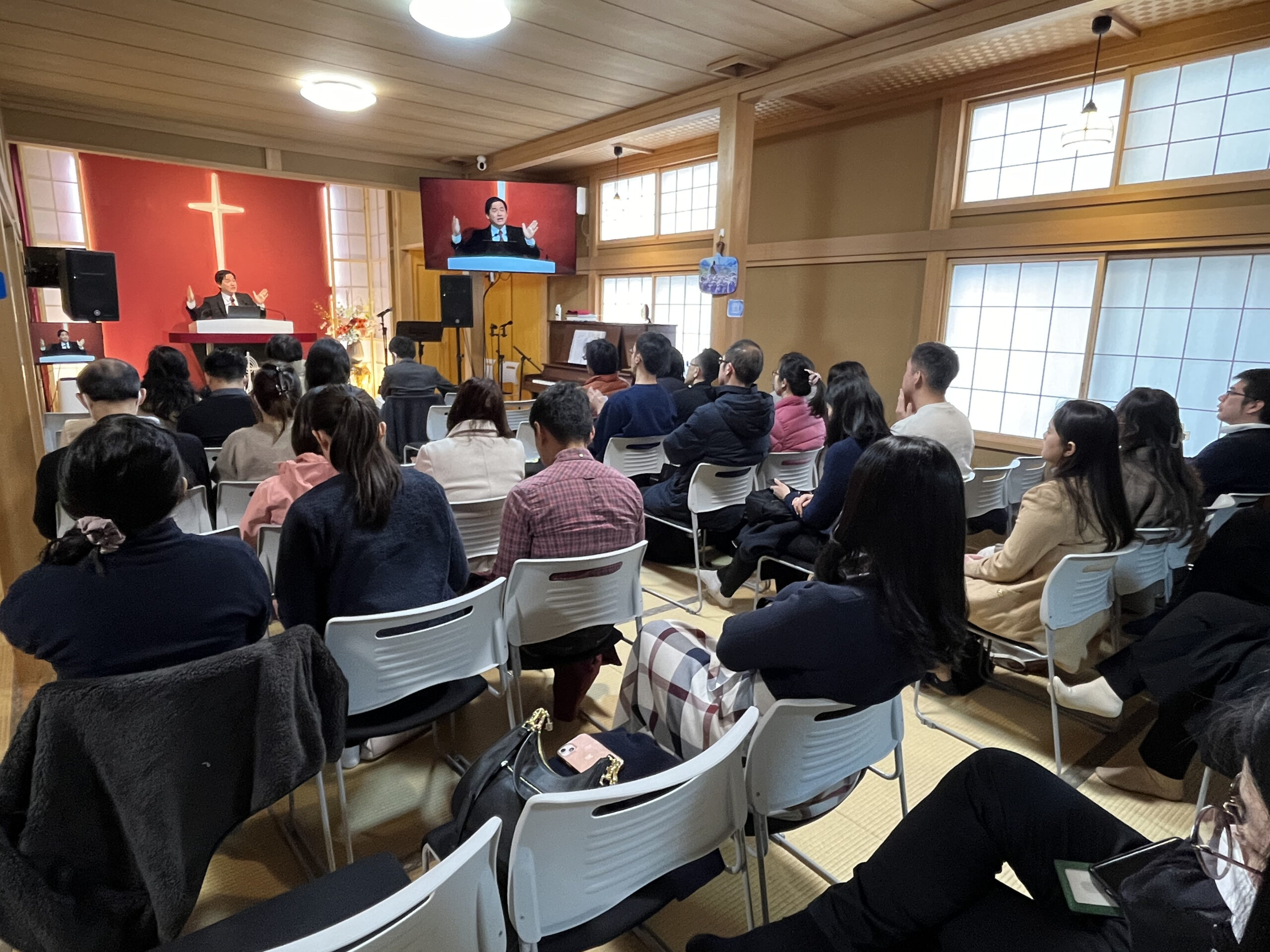Sunday Service
Service 1 at 09:30
Service 2 at 13:00
Morning Service & Sunday School at 9:30AM; Afternoon Service (Bahasa only) at 1PM; Prayer Meeting on Saturday 9AM. Church Map

The number of Christians in Japan has never reached 1% of its total population, which means it is one of the countries which have the lowest number of believers in the world. A small number of people realized this and that only by God’s Words, the insistence of world’s philosophy, which slowly void their spirituality, can be defeated.
Baca Selengkapnya
Service 1 at 09:30
Service 2 at 13:00

Saturday
At 09.00 JST

Bible Study and Seminars
STEMI
Stephen Tong Evangelistic Ministry InternationalMomentum
Momentum Book StoreSTRIJ
Sekolah Teologi Reformed Injili JakartaRCRS
Reformed Center for Religion and SocietySKC
Sekolah Kristen CalvinASJ
Aula Simfonia JakartaGRII Pusat
Gereja Reformed Injili IndonesiaPerpustakaan MRII Tokyo
Perpustakaan IREC Tokyo